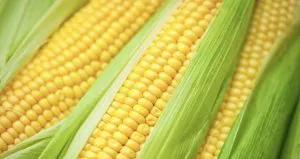The 7 Best High-Protein Snacks for Brain Health, According to Dietitians

In today’s fast-paced world, maintaining optimal brain health is more important than ever. Whether you’re tackling a demanding workday, studying for exams, or simply aiming to stay sharp as you age, the foods you eat play a critical role in supporting cognitive function. Protein, in particular, is a key nutrient that helps repair brain cells, supports neurotransmitter production, and stabilizes blood sugar levels for sustained mental energy. But not all snacks are created equal when it comes to brain health. To help you make informed choices, we’ve consulted dietitians to compile a list of the seven best high-protein snacks that nourish your brain and keep you focused. These snacks are not only delicious and convenient but also packed with nutrients like omega-3 fatty acids, antioxidants, and essential vitamins that promote memory, mood, and overall cognitive performance.
1. Canned Salmon
Canned salmon is a powerhouse snack that’s as convenient as it is nutritious. Rich in high-quality protein—offering about 20 grams per 3-ounce serving—it’s also one of the best sources of omega-3 fatty acids, particularly docosahexaenoic acid (DHA). “DHA is a critical component of brain cell membranes and supports communication between neurons,” says registered dietitian Sarah Thompson, RD. Omega-3s also have anti-inflammatory properties that may protect against cognitive decline.
Why It’s Great for Your Brain: Beyond protein and omega-3s, canned salmon provides vitamin D, which has been linked to improved mood and cognitive function. It’s also low in mercury compared to other fish like tuna, making it a safe choice for regular consumption.
How to Enjoy It: Spread canned salmon on whole-grain crackers for a crunchy, satisfying snack, or mix it with a bit of lemon juice and herbs for a quick salad. Opt for wild-caught varieties packed in water for the most nutrient-dense option.
2. Nuts
Nuts, such as almonds, walnuts, and pistachios, are a go-to snack for brain health, thanks to their combination of protein (about 6-7 grams per 1-ounce serving), healthy fats, and vital nutrients. Walnuts, in particular, are a standout because they contain DHA, a rare plant-based source of omega-3s. “Nuts are also rich in vitamin E, an antioxidant that may protect brain cells from oxidative stress,” explains dietitian Maria Lopez, RD.
Why It’s Great for Your Brain: The healthy fats in nuts support blood flow to the brain, while vitamin E may reduce the risk of cognitive decline as you age. Additionally, nuts provide magnesium, which plays a role in nerve function and mood regulation.
How to Enjoy It: Grab a handful of raw or lightly salted nuts for a quick snack, or pair them with a small amount of dried fruit for a sweet-salty balance. Stick to a 1-ounce portion to keep calories in check, as nuts are energy-dense.
3. Greek Yogurt with Blueberries
Greek yogurt is a creamy, protein-packed snack that delivers about 10 grams of protein per 5-ounce serving. When paired with blueberries, it becomes a brain-boosting duo. “Blueberries are loaded with anthocyanins, antioxidants that improve memory and reduce inflammation in the brain,” says dietitian James Carter, RD. Greek yogurt also contains probiotics, which emerging research suggests may support mental health through the gut-brain axis.
Why It’s Great for Your Brain: The protein in Greek yogurt provides steady energy to the brain, while blueberries’ antioxidants combat oxidative stress that can impair cognitive function. The combination is also rich in calcium and vitamin C, which support overall neurological health.
How to Enjoy It: Choose plain, unsweetened Greek yogurt to avoid added sugars, and top it with a half-cup of fresh or frozen blueberries. For extra crunch, sprinkle on a tablespoon of chia seeds or crushed nuts.
4. Edamame
Edamame, or young soybeans, is a plant-based protein powerhouse, offering about 8.5 grams of protein per half-cup serving. This snack is not only satisfying but also rich in nutrients that support brain health. “Edamame contains folate, which is essential for neurotransmitter production, and magnesium, which supports cognitive function,” notes dietitian Emily Nguyen, RD.
Why It’s Great for Your Brain: The fiber in edamame helps stabilize blood sugar levels, preventing energy crashes that can fog your brain. Its antioxidants, including isoflavones, may also protect against age-related cognitive decline.
How to Enjoy It: Steam frozen edamame and sprinkle with a pinch of sea salt for a quick, portable snack. You can also toss it into a small salad with cherry tomatoes and a drizzle of olive oil for added flavor.
5. Quinoa
Quinoa is a versatile, gluten-free grain that doubles as a high-protein snack, providing about 8 grams of protein per cooked cup. Unlike most plant-based proteins, quinoa is a complete protein, meaning it contains all nine essential amino acids. “Quinoa is also rich in magnesium and antioxidants like quercetin, which support brain health,” says dietitian Rachel Kim, RD.
Why It’s Great for Your Brain: Quinoa’s complex carbohydrates provide a steady source of glucose, the brain’s primary fuel, while its protein content supports neurotransmitter production. Its antioxidants help reduce inflammation that can impair cognitive function.
How to Enjoy It: Prepare a small batch of quinoa and mix it with chopped veggies, herbs, and a squeeze of lemon for a savory snack. Alternatively, combine it with a touch of honey and cinnamon for a sweet option. Keep pre-cooked quinoa in the fridge for quick access.
6. Hard-Boiled Eggs
Hard-boiled eggs are a classic, portable snack that packs 6 grams of protein per egg. They’re also one of the best sources of choline, a nutrient critical for brain health. “Choline is a precursor to acetylcholine, a neurotransmitter involved in memory and learning,” explains dietitian Laura Patel, RD. Eggs are also affordable and easy to prepare in bulk.
Why It’s Great for Your Brain: In addition to choline, eggs provide B vitamins, which support energy production in brain cells, and lutein, an antioxidant that may enhance cognitive performance.
How to Enjoy It: Peel and eat hard-boiled eggs plain, or sprinkle them with paprika or cracked pepper for extra flavor. Pair with a piece of fruit or a few veggie sticks for a balanced snack. Aim for one or two eggs to keep the snack light.
7. Pumpkin Seeds
Pumpkin seeds, also known as pepitas, are a crunchy, nutrient-dense snack that delivers about 10 grams of protein per 1-ounce serving. They’re a rich source of zinc and magnesium, both of which are essential for brain health. “Zinc supports memory formation, while magnesium helps regulate mood and cognitive function,” says dietitian Michael Wong, RD.
Why It’s Great for Your Brain: Pumpkin seeds also contain antioxidants and healthy fats that protect brain cells from damage. Their satisfying crunch can help curb mindless snacking, keeping you focused.
How to Enjoy It: Roast pumpkin seeds with a dash of olive oil and your favorite spices for a flavorful snack. Alternatively, toss them into a homemade trail mix with nuts and a few dark chocolate chips. Stick to a small handful to manage portion size.
Why High-Protein Snacks Matter for Brain Health
Protein is a building block for brain cells and neurotransmitters, the chemical messengers that enable communication between neurons. “Eating protein-rich snacks helps stabilize blood sugar levels, preventing the energy dips that can impair focus and mood,” says Thompson. Combining protein with other brain-supporting nutrients—like omega-3s, antioxidants, and B vitamins—amplifies these benefits, promoting long-term cognitive health.
Dietitians emphasize that variety is key. “Rotating these snacks ensures you’re getting a wide range of nutrients that work together to support brain function,” says Lopez. Additionally, portion control is important, as overeating even healthy snacks can lead to sluggishness. Aim for snacks that provide 10-20 grams of protein and pair them with fiber-rich foods like fruits or vegetables for sustained energy.
A Note on Personalization
While these snacks are generally beneficial, individual dietary needs vary based on factors like age, activity level, and health conditions. For example, those with nut allergies should avoid nuts and seeds, while individuals with kidney issues may need to moderate protein intake. Always consult a registered dietitian or healthcare provider for personalized advice.
Conclusion
Supporting your brain health doesn’t have to be complicated or time-consuming. With these seven high-protein snacks—canned salmon, nuts, Greek yogurt with blueberries, edamame, quinoa, hard-boiled eggs, and pumpkin seeds—you can fuel your mind with the nutrients it needs to thrive. Not only are these snacks delicious and easy to prepare, but they also deliver a powerful combination of protein, healthy fats, and brain-boosting vitamins and minerals. Incorporate them into your routine to stay sharp, focused, and energized throughout the day. Your brain will thank you!
Disclaimer: This article is for informational purposes only and does not constitute medical or nutritional advice. Consult a healthcare professional before making significant changes to your diet.







